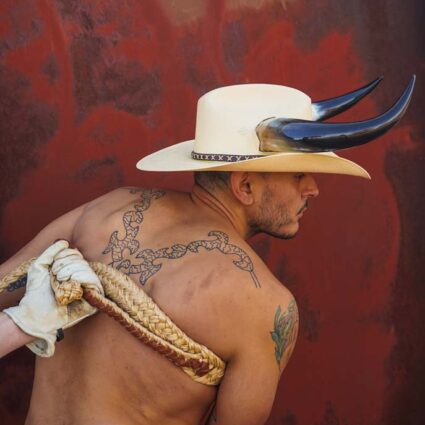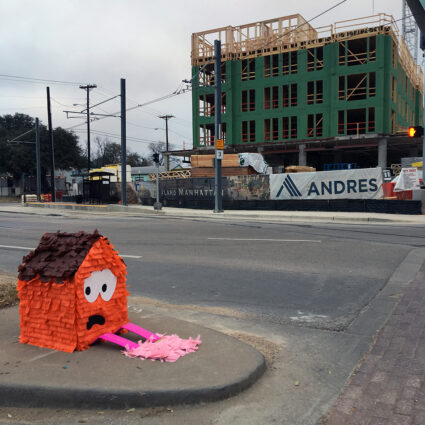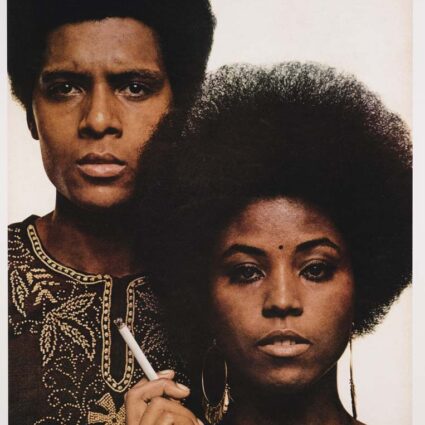The Madrid Film Festival, which screens at a circa-1920 baseball field, is another creative in-person offering in the curious Turquoise Trail town situated in New Mexico’s Ortiz Mountains.
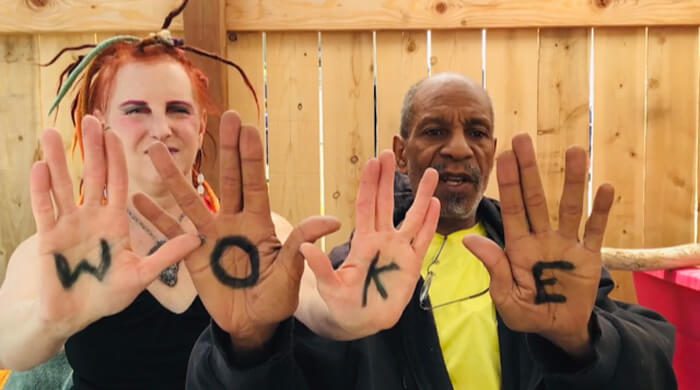
SANTA FE, NM—Madrid, a revived ghost town located about thirty miles southwest of Santa Fe, is preparing to celebrate the creativity of its township and New Mexican residents at large with an annual short film festival.
Organized by Joe West and Andrew Wice with support from Doug Speer and Laine Patterson, the Madrid Film Festival is now in its fourth year. “The festival has always fostered a feeling of community togetherness and cooperative celebration,” says Wice in a recent interview with Southwest Contemporary.
For a town with a little more than 350 people (according to one population estimate), the tight-knit scene combined with its unique historical location and prizes like Le Palme d’Coal and the Oscar Huber Award gives the program an air of summer camp idiosyncrasy. Last year, for instance, Marissa Aurora received the 2020 “Local Film Award” for her experimental short Toward the Light, which chronicled the semi-annual invasion of migratory moths.
This year, Wice says that many of the films explore “large questions of authenticity, responsibility, and community.” He adds that the film festival is a connection point between historic Madrid and its current incarnation as an arts hideaway.
Formerly known as Coal Gulch, Madrid (pronounced MAD-rid) sits in a narrow canyon in the Ortiz Mountains on the Turquoise Trail. Surrounded by coal-rich hills, it was the largest coal mining town in New Mexico with a thirty-square-mile network of mining tunnels and a population that ballooned to 2,500 by 1893.
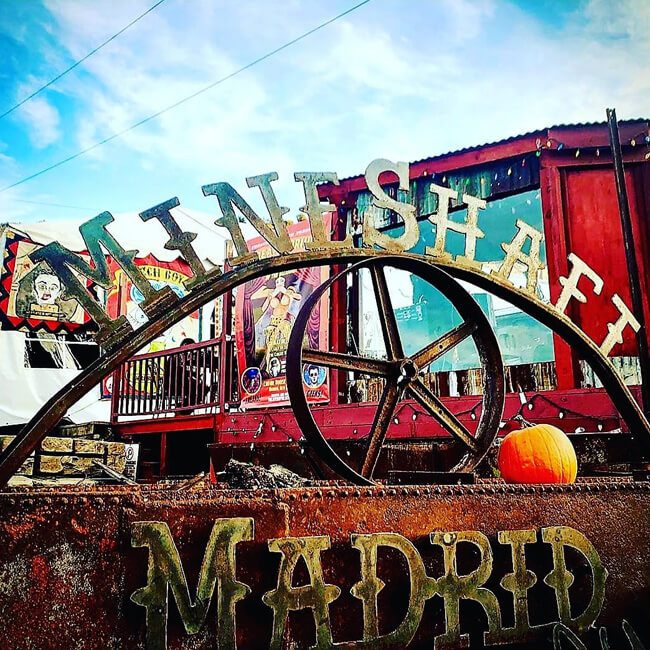
Madrid was officially founded and renamed in 1894 by a series of mining companies that built and populated the village with mine workers and their families. It was wired for electricity in the 1920s, became known as the “City of Lights,” and allegedly inspired Walt Disney’s vision for Main Street, U.S.A. at Disneyland.
“Madrid has always been an exuberantly creative town, going back 100 years to the spectacular Christmas lights, parades, and Storyland installation at the ballpark, which came complete with a miniature train for the children to ride around through fairytale scenes,” Wice says.
When the coal industry went bust as the country turned to natural gas, most residents moved away and Madrid became a ghost town. The 360-acre parcel of land—complete with a restaurant, opera house, museum, gas station, and approximately 150 run-down mining shacks—went up for sale for $500,000 in 1973. Hippies eventually repopulated the town and moved into the existing but largely abandoned structures.
“One can draw a straight line from the arrival of artists in the early 1970s to Madrid’s ongoing existence as a place where original art is created every day,” Wice said. “Such creators are also the best possible audience for new artwork, such as will be found at the film festival.”
What remains today is a creative and eclectic community. It has one of the best low-powered local radio stations (KMRD-LP 96.9 FM). There’s also the beloved watering hole, the Mine Shaft Tavern and Cantina, built by one of the town’s original owners, Oscar Huber himself. The fourth annual Madrid Film Festival will be held outdoors at the historic Oscar Huber Memorial Ballpark.
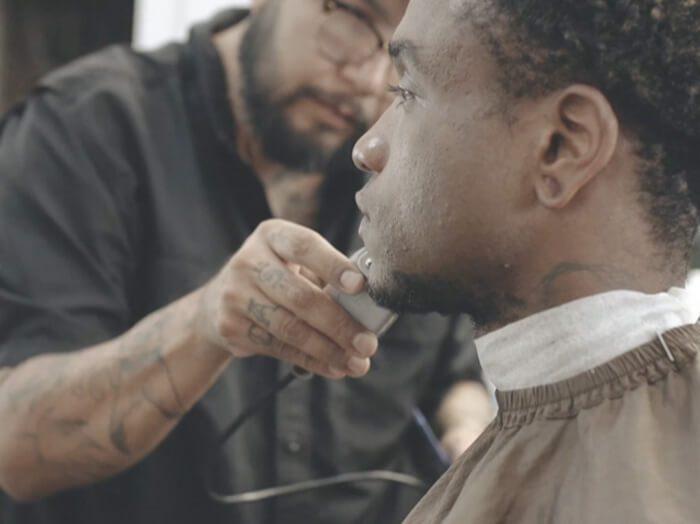
Last year, festival organizers accommodated for COVID-19 during a slightly awkward two-day, in-person, six-feet-apart screening at Beer Creek Brewing Company near Los Cerrillos. Wice is feeling significantly more optimistic about this year’s event.
“With an enormous baseball field at our disposal this year, we can do everything in one night in person,” Wice says. “We can all sit together under the stars, surrounded by fellow movie fans, filmmakers, family, and friends,” Wice says.
The Madrid Film Festival is scheduled to take place Friday, August 27. Seating at the ballpark will commence at 6:30 pm, and the program will begin at 7:30. Tickets are $10, and attendees are encouraged to bring their own chairs and blankets. In the event of bad weather, the festival will move to Saturday, August 28. For more information, visit the Madrid Film Festival webpage.
